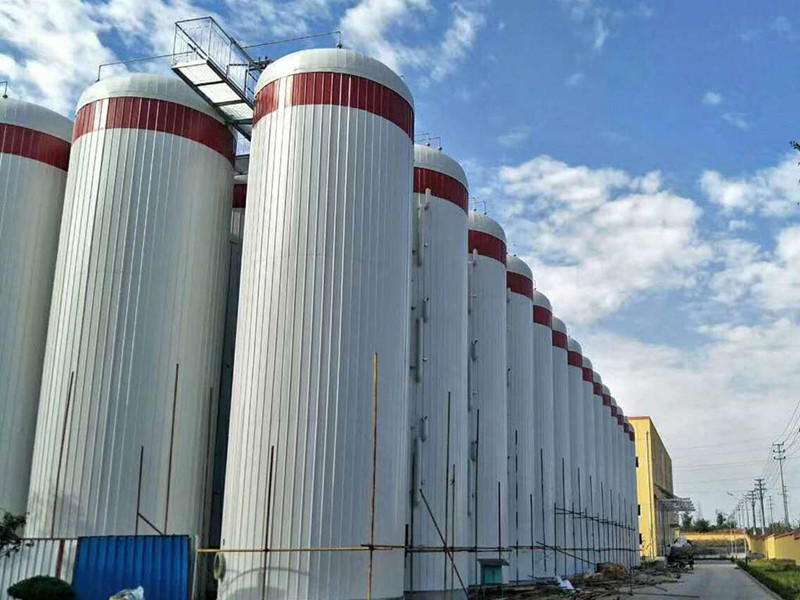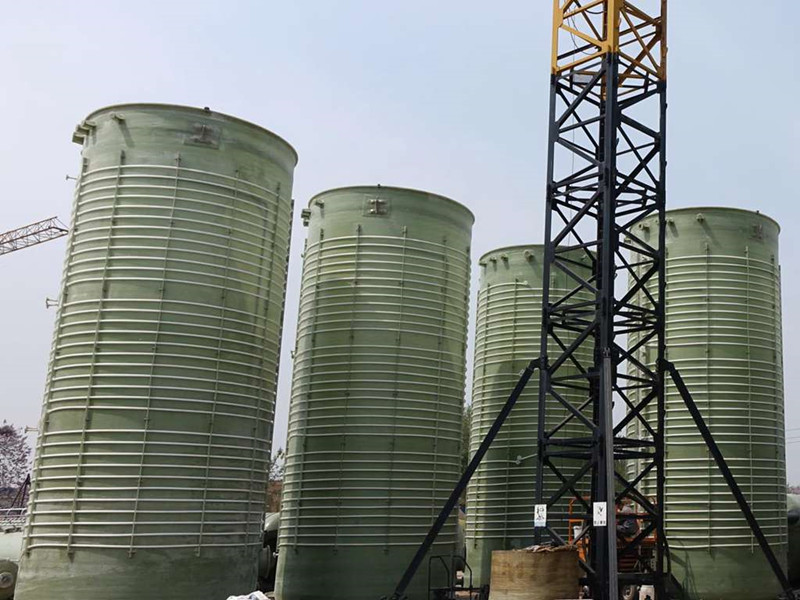Insulation Tanks That Cut Heat Loss Fast - ASME, Custom?
Insulation Tanks is a key solution in the manufacturing industry, specifically within Specialized equipment manufacturing and Manufacturing of storage and transportation equipment. This article explores how No. 1289, Yingbin South Street, Jizhou District, Hengshui, Hebei, China supports professionals with durable, high-performance products, and explains why this product is an ideal choice for businesses in these sectors.

Table of Contents
- Insulation Tanks Overview
- Benefits & Use Cases of Insulation Tanks in Manufacturing of storage and transportation equipment
- Cost, Maintenance & User Experience
- Sustainability & Market Trends in manufacturing
- Conclusion on Insulation Tanks from No. 1289, Yingbin South Street, Jizhou District, Hengshui, Hebei, China
Insulation Tanks Overview
Insulation Tanks are engineered storage vessels designed to maintain product temperatures and prevent heat gain or loss during storage and transport. In specialized equipment manufacturing, particularly for storage and transportation equipment, these tanks are essential for media such as hot water, brine, glycols, diluted acids/alkalis, and other process liquids that demand thermal stability. Typical configurations combine a corrosion-resistant inner shell—often fiber-reinforced plastic (FRP) with resin systems matched to the media—with high-performance insulation such as polyurethane or phenolic foam (commonly 30–100 mm), achieving low thermal conductivity (~0.02–0.04 W/m·K). Capacities can range from compact day tanks to large vertical tanks exceeding 100 m³.
As a reliable manufacturer and integrator, No. 1289, Yingbin South Street, Jizhou District, Hengshui, Hebei, China delivers Insulation Tanks with features such as filament-wound FRP structures, bonded or cladded insulation layers, and weatherproof outer jackets. Optional heat tracing, level instrumentation, manways, ladders, and platforms enable safe, efficient operation. In production environments, maintaining stable media temperature reduces process variability, energy consumption, and unplanned downtime—key priorities for B2B decision makers overseeing OEE and compliance.
Benefits & Use Cases of Insulation Tanks in Manufacturing of storage and transportation equipment
In storage and transportation equipment manufacturing, Insulation Tanks protect product integrity across the value chain. Typical use cases include hot water and CIP loops in food/beverage plants, tempered water/glycol networks in HVAC and process cooling, brine storage for rapid chilling, and chemically compatible media in fine chemicals or surface treatment lines. Skid-mounted insulated day tanks support modular deployments, while vertical field-erected units serve centralized utilities with minimal footprint.
Key advantages include: superior corrosion resistance from FRP laminates; tightly controlled heat loss for energy savings; lighter weight versus steel for easier installation; and broad customization—nozzles, baffles, venting, insulation thickness, and jackets tailored to site conditions. No. 1289, Yingbin South Street, Jizhou District, Hengshui, Hebei, China brings deep sector know-how in resin selection, laminate design, and insulation integration, helping customers meet stringent temperature hold times and safety targets. For transport-adjacent applications, ruggedized cladding and supports guard against vibration and weather, maintaining consistent performance during handling and operation.

Cost, Maintenance & User Experience
Total cost of ownership (TCO) for Insulation Tanks is driven by three factors: energy efficiency, service life, and maintenance intensity. High-quality insulation can reduce thermal losses significantly compared to uninsulated vessels, supporting payback periods often within 12–24 months in continuous-duty utilities. FRP construction resists corrosion, lowering the frequency of recoating or tank replacement and cutting lifecycle costs. Customizable insulation thickness lets teams fine-tune CAPEX versus OPEX for their climate, duty cycle, and energy rates.
Maintenance is straightforward: periodic visual inspection of the cladding and seams, verification of supports and heat tracing (if installed), and scheduled cleaning aligned with the process media. Users in specialized equipment manufacturing report stable temperatures, fewer heater cycles, and improved operator safety due to cool external surfaces. Over a 15–20 year service horizon, many customers note reduced downtime versus metallic alternatives in corrosive or humid environments, translating into a predictable ROI and better budget planning. No. 1289, Yingbin South Street, Jizhou District, Hengshui, Hebei, China supports after-sales service, spare parts, and technical guidance to keep assets in peak condition.
Sustainability & Market Trends in manufacturing
Efficiency and emissions reduction are reshaping capital decisions in manufacturing. By curbing heat loss, Insulation Tanks directly decrease energy consumption, supporting corporate decarbonization roadmaps and compliance with evolving energy-efficiency standards. Designs that extend equipment life and minimize corrosion-driven replacements further reduce embedded carbon. In parallel, demand is rising for safer, low-VOC fabrication methods and materials selection aligned with environmental goals.
No. 1289, Yingbin South Street, Jizhou District, Hengshui, Hebei, China adopts a forward-looking approach—engineering Insulation Tanks for long service life, maintainability, and compatibility with heat tracing, leak detection, and automation. The company emphasizes quality control, precise resin-media compatibility, and optimized insulation systems to meet modern EHS expectations. For B2B decision makers, these trends translate into fewer energy-related penalties, improved ESG metrics, and resilient operations that align with customer and regulatory demands across domestic and export markets.
Conclusion on Insulation Tanks from No. 1289, Yingbin South Street, Jizhou District, Hengshui, Hebei, China
Insulation Tanks are a strategic asset for manufacturers who need stable temperatures, lower energy consumption, and dependable uptime in storage and transportation equipment. With corrosion-resistant FRP construction, engineered insulation systems, and broad customization, No. 1289, Yingbin South Street, Jizhou District, Hengshui, Hebei, China delivers reliable, high-ROI solutions trusted by industrial teams.
Ready to optimize your utilities and process storage? Contact us: email: sales@jrain-frp.com. Visit our website: https://www.jrain-frp.com
Latest news
-
Rectangular Tank Made of Fiberglass Material – Durable, Cost-Effective Liquid Storage SolutionsNewsNov.24,2025
-
Hollow Drill Rods for Efficient Drilling Operations in the Field | Durable, Lightweight & CustomNewsNov.23,2025
-
Powerful yt27 Rock Drill for Tough Mining Surfaces | Durable & PortableNewsNov.23,2025
-
Why the Reversible Drill Bit Is a Versatile Tool for All Your Drilling NeedsNewsNov.22,2025
-
Fiberglass Food Grade Equipment: Key Features, Benefits & Global ImpactNewsNov.22,2025
-
How a Drilling Rod Spirals Down Into the Earth: Tech, Trends & Global ImpactNewsNov.21,2025











